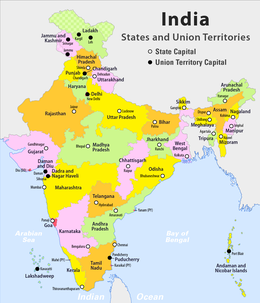 India, the seventh-largest country in the world by land area and the second-most populous, is a vibrant tapestry of cultures, traditions, languages, and landscapes. With a rich history spanning millennia, India has played a significant role in shaping world civilization and remains a beacon of diversity, resilience, and progress. Let’s explore the various facets that define the essence of India:
India, the seventh-largest country in the world by land area and the second-most populous, is a vibrant tapestry of cultures, traditions, languages, and landscapes. With a rich history spanning millennia, India has played a significant role in shaping world civilization and remains a beacon of diversity, resilience, and progress. Let’s explore the various facets that define the essence of India:
Cultural Diversity: India’s cultural landscape is incredibly diverse, with each region boasting its unique traditions, languages, cuisines, and festivals. From the snow-capped peaks of the Himalayas to the sun-kissed beaches of the Indian Ocean, India’s geographical diversity is mirrored in its cultural tapestry. The country is home to a multitude of religions, including Hinduism, Islam, Christianity, Sikhism, Buddhism, and Jainism, coexisting harmoniously and contributing to its rich mosaic of faiths and beliefs.
Historical Heritage: India’s history is steeped in antiquity, with archaeological evidence tracing human civilization in the region back to the Indus Valley Civilization, one of the world’s oldest urban societies. Over the centuries, India has been home to numerous dynasties, empires, and kingdoms, each leaving its indelible mark on the land. Iconic monuments such as the Taj Mahal, Qutub Minar, Ajanta and Ellora Caves, and Red Fort stand as testaments to India’s architectural prowess and historical legacy.
Economic Growth and Innovation: In recent decades, India has emerged as one of the fastest-growing major economies in the world, fueled by economic liberalization, technological advancements, and a burgeoning entrepreneurial spirit. The country’s IT and software services sector, often referred to as the “Indian Silicon Valley,” has garnered global recognition, while industries such as pharmaceuticals, automotive, and renewable energy continue to thrive. India’s startup ecosystem is vibrant, with innovative ventures disrupting traditional industries and driving growth across sectors.
Democratic Governance: As the world’s largest democracy, India upholds the principles of liberty, equality, and fraternity enshrined in its Constitution. With a robust electoral process, a vibrant media landscape, and an independent judiciary, India’s democratic institutions provide a platform for citizen participation and governance accountability. Despite the challenges posed by diversity, India’s commitment to pluralism and democratic values remains steadfast.
Challenges and Opportunities: While India has made significant strides in various fields, it also faces numerous challenges, including poverty, inequality, environmental degradation, and healthcare disparities. Addressing these challenges requires concerted efforts from government, civil society, and the private sector to ensure inclusive and sustainable development. India’s youthful population, innovative potential, and cultural richness present immense opportunities for harnessing demographic dividends and fostering socio-economic progress.
Conclusion: India’s journey from ancient civilization to modern nationhood is a saga of resilience, diversity, and dynamism. As the country navigates the complexities of the 21st century, it draws strength from its rich heritage, democratic ethos, and entrepreneurial zeal. With a spirit of inclusivity, innovation, and collaboration, India continues to chart a course towards prosperity, contributing to global peace, progress, and harmony.


